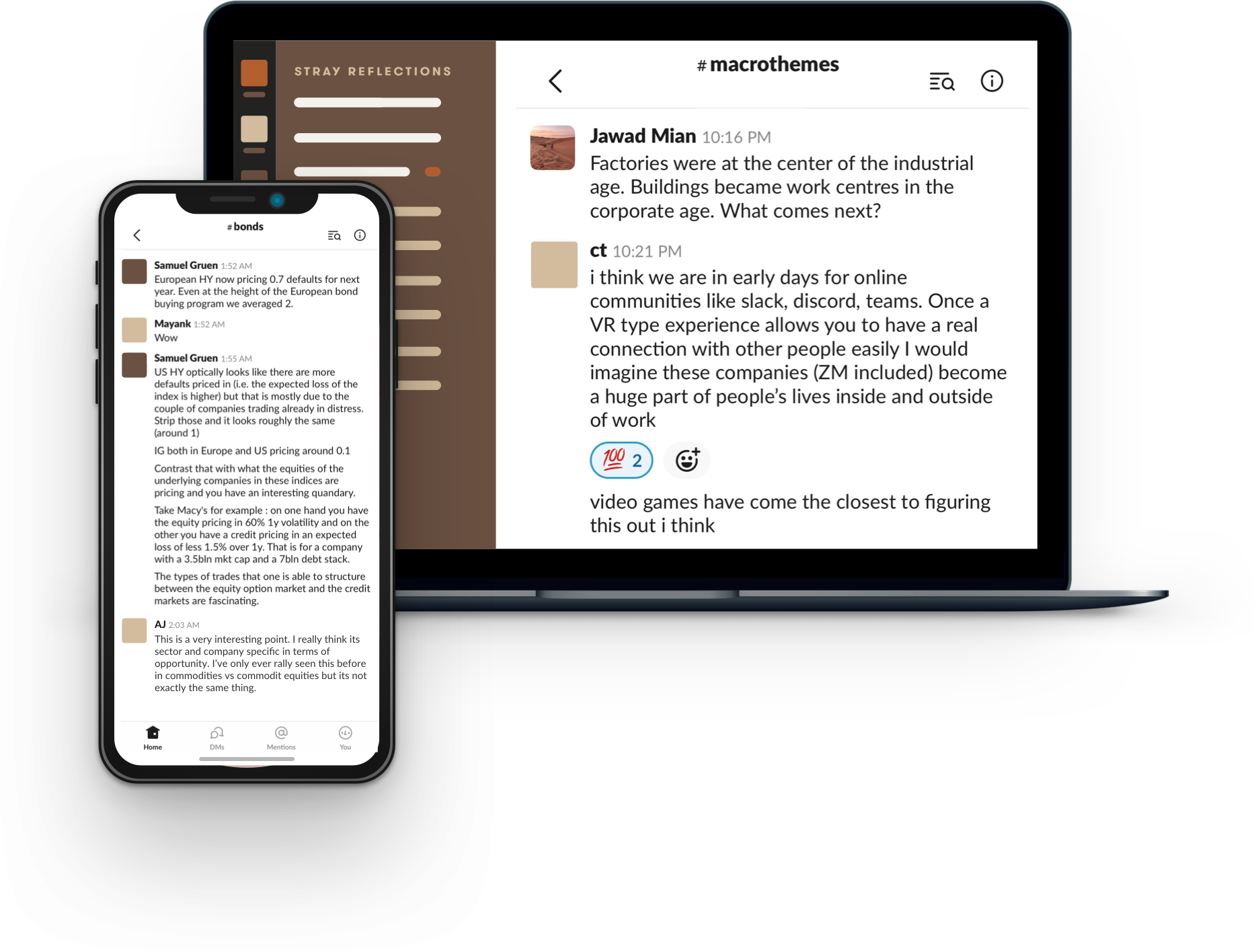Kurt Vonnegut and Joseph Heller, the writers, were wandering around a palatial home on Shelter Island, the scene of a billionaire’s extravagant party.
Vonnegut turned to his friend. “Joe,” he said, “how does it feel that our host only yesterday may have made more money than your novel has earned in its entire history?”
“I’ve got something he can never have,” Heller replied.
“And what on earth could that be?” Vonnegut asked.
“The knowledge that I’ve got enough.”
* * *
What does it mean to have enough?
Has it struck you that no matter what we achieve, how much money we earn, or how many blessings come our way, more is never enough? There seems to be an epidemic of discontent.
“Contentment is a treasure,” Prophet Muhammad said. The problem is we search for it out there. Yet contentment comes from the inside, in the very place where we currently exist. The word itself, contentment, carries the clue to be content—to be at peace with what you already contain.
Realizing this can save us from exhausting a lot of misdirected energy and put us on a more fruitful path.
How exactly have we been programmed by society? “The right to the pursuit of happiness,” wrote Aldous Huxley, “is nothing else than the right to disillusionment phrased in another way.”
Alan Watts observed long ago that we are breeding a type of human being incapable of living in the present—that is, of really living.
There is no point whatever in making plans for a future which you will never be able to enjoy. The future is a hoax. When your plans mature, you will still be living for some other future beyond. You will never be able to sit back with full contentment and say, “Now, I’ve arrived!” Your entire education has deprived you of this capacity because it was preparing you for the future, instead of showing you how to be alive now.
The modern man does not know what he wants. He works for success, fame, a happy marriage, fun, or to help other people. But these are not real wants because they are not actual things. They are the by-products which have no existence apart from some substance. Money is the perfect symbol of all such desires, and to make it one’s goal is the most blatant example of confusing measurements with reality.
All that exists is now. To find contentment, then, our mind must stop wandering into the past or the future. There’s no point thinking about what once was, what might be, or what ought to be. Our mind keeps us embroiled in illusions of our own making.
We project that “Just as soon as I make enough money, I can relax.” Or “Just as soon as I get a better job, a bigger house, take a vacation ... I will be content.” And so our capacity for contentment is thrust onto another time, a different place, a better circumstance.
We engage in projections all the time, day in and day out, in the little things as well as the big things.
I am feeling disorganized and falling behind in my writing, so I explode at my children for being disorganized. It’s not their fault—of course, kids make a mess when playing—and I know it in my heart. There’s nobody to blame for my discontent.
I dislike my own father’s negativity, but I fail to see the ways in which I am negative. It is more convenient to project all the negativity onto him. It takes honesty, humility, and courage to admit the source of our discontent does not lie solely in the other person. I’m guilty of what I’m accusing my father of.
Another example: a simple request, extended to a friend, to take care of an errand. We later find out they didn’t see it through. The reaction of the ego is, “They don’t respect me.” We don’t stop to think whether that’s true; we just default into the belief, programmed as we are not to question our thoughts.
But if we pause, and breathe, and take time to reflect, we cannot absolutely know the truth of this perceived disrespect, but we can think of so many real examples that are evidence of their respect toward us.
When we are making judgments, positive or negative, we are projecting our own hidden qualities. When projection is at work, our response is typically emotional, compulsive, and out of proportion.
Last week, my wife read news about the side effects of Covid-19 vaccines and started crying. She didn’t get a jab. She won’t for another eight months because she’s still breastfeeding our daughter. Her pain and suffering are just a projection of her mind. She remembers her skin allergy and fears it will come back. The fact is she is perfectly healthy now. But her subconscious mind does not make any attempt to distinguish fact from fiction. It’s simply programmed to respond this way.
If instead we reclaim our projections, accept what is going on, look for opportunities, and gently move on to the remedy, we face a reasonable chance for more contentment.
What’s the reality of my situation? Look with loving-kindness, patience and compassion at exactly what is happening. State what is, without the projections. When reality is honored, we can begin to work our way out of dilemmas and self-inflicted drama.
Projections take us away from the present moment, muddling our inner and outer realities. The first step to contentment, then, is to reel in our projections. Contentment comes to us the more present and aware we are to what is.
In their book Contentment: A Way to True Happiness, authors Robert Johnson and Jerry Ruhl call contentment being in love with the moment, “not just dutifully accepting it like an arranged marriage but passionately, rapturously embracing the eternal now as your soul mate.” Alan Watts invites us to the “way of acceptance,” being contented with whatever comes.
This doesn’t mean that you should give up or become passive. When things don’t go the way I wish, I assume a larger plan is at work. This unseen pattern—call it fate or the will of God—may not be clear to me now, but it will be revealed, and I accept it. I have no interest in grabbing life by the collar and throttling it into submission.
It is I who submits. I move away from insisting that life be this way or that, and I learn to dance with the music that plays. I may take the lead, assert my will, and fate moves with me. On the very next step, I relinquish the lead and I follow. It means letting go of getting my way.
True contentment grows, not out of pursuing self-interest, but from seeing divine providence in all that crosses our path—the disappointments and defeats as well as the joys and victories, and even in those circumstances that we don’t want and would never choose.
Religion has become a dirty word, and some people have trouble acknowledging a power greater than themselves. We have been programmed to serve the ego rather than the divine. With godless spirituality, we no longer affirm life as the play of God. All our discontent is mostly because of our lack of belief.
The Sufis say contentment and perfect submission opens up a harmonious feeling and brings the divine will into harmony with our own. Our blessing now becomes a divine blessing, our words divine words, our will absorbs into the whole, and so our will becomes the will of God.
“Contentment makes a man rich,” said Sheikh Sa’di, “tell this to the greedy world-travelling one.”







